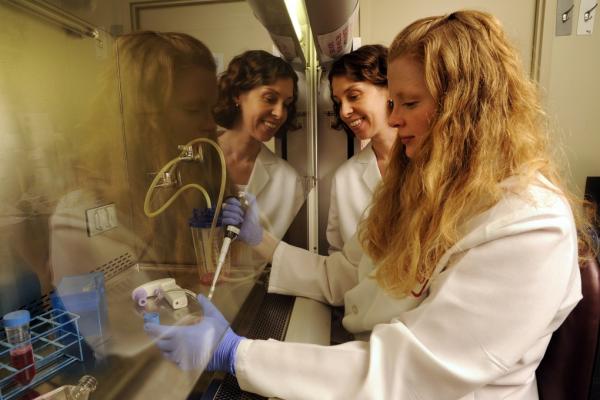How to Thrive — Not Just Survive — in Science
Thrive. Originally from the Norse language, the word has evolved into the superlative of success. More than just doing well, it means to flourish, prosper, or bloom—words that set the bar very high in any profession, including science.
We believe that to thrive, you need to step outside what you already know and grasp what you have yet to learn—and to help you navigate that path we’ve compiled ten terrific tips for thriving as a scientist.

1. Follow your interests, but be open to new ideas.
Drive and passion can lead you in the right direction; however, an opportunity might present itself outside your current area of interest, so consider it! New ideas might help you focus on a subject area you hadn’t previously pursued or the chance to work with a leader in a new field, or it might serve as an opportunity to build new skills. By embarking on something new, you may learn more about a previously hidden strength or weakness that can shape a future career decision.
2. Find a mentor.
Whether he or she is a newly established scientist, a veteran PI, or someone outside the world of science, a mentor will help you shape your career and grow as a person.
3. Publish, but don’t neglect your personal development.
You are a scientist and a professional. It is important to continue to develop both research skills and your personal growth in other areas. That might mean strengthening your budgeting and management abilities or becoming more comfortable with public speaking.
4. Be a mentor.
One study found that highly cited scientists spent more time on non-research activities, including serving as mentors, than on research itself. Mentorship broadens the mind, and scientific discovery benefits from an open mind.
5. Spend time outside the lab.
Working on research and submitting proposals are activities you can count on over the course of your working life. Try to strike a balance and foster relationships with new and old friends, loved ones, and professional contacts.
6. Learn how to talk about your research clearly.
Being a clear communicator will serve you well as a researcher, professional, friend, and family member. Scientists who communicate clearly are constantly honing their skill, refining explanations about their work to make it accessible to audiences of all ages.
7. Be resilient.
Failure is an important part of the scientific process, and it has been cited as a source of motivation and later success. It will happen, so be ready to accept it and move on to your next success.
8. Smile — or try to!
Work, even if you’re incredibly passionate about it, has difficult moments. While it is valuable to acknowledge the challenging aspects of your professional endeavors, it is always easier (for you and others) when you do it with a smile.
9. Forward motion, not perfection.
There will be errors. Mistakes will be made and it is important to not let them derail you. Acknowledge and learn from every mistake, so that it will be less likely to be made again.
10. Stay in touch!
The relationships you make early in your career can last a lifetime. Cultivate a network of colleagues, mentors, and others you meet during your professional journey by finding opportunities to engage.
What other tips would you share to help researchers become ‘scientific all-stars’?
Related Blog Posts
This page was last updated on Wednesday, July 5, 2023
